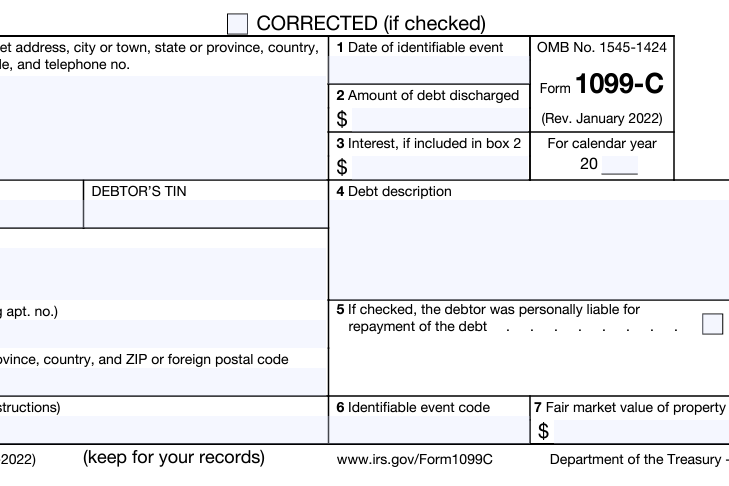Employee Gifts are Taxable
I was perusing the news a few weeks ago. The news headlines said, “Wal-Mart Slammed After Gifting Employees 55-Cent Ramen Noodles” for working during a blizzard. Needless to say, Wal-Mart was dragged on Social Media. While I agree, it’s a cheap “gift”, it also made me think of other headlines of similar disdain, like this one: A bus driver retired after 50 years, and ‘all’ they gave him was replica of a bus with his picture on it.
Did you know that most employee gifts are taxable?

De minimis Gifts are not taxable
A De minimis gift is a non-cash gift or award, considering its value and the frequency with which it is provided, is so small as to make accounting for it unreasonable or impractical. In the Wal-Mart example, 55-cent Ramen Noodles would definitely qualify as de minimis. It was a one-time inexpensive gift.
Internal Revenue Code 132(a)(4) excludes de minimis gifts from income (meaning not taxable to the receiver).
Examples of De minimis items not included in taxable income
- Controlled, occasional employee use of photocopier
- Occasional snacks, coffee, doughnuts, etc.
- Occasional tickets for entertainment events
- Holiday gifts
- Occasional meal money or transportation expense for working overtime
- Group-term life insurance for employee spouse or dependent with face value not more than $2,000
- Flowers, fruit, books, etc., provided under special circumstances
- Personal use of a cell phone provided by an employer primarily for business purpose
Cash gifts are taxable
Cash is considered wages, unless an exception applies. An example would be OCCASIONAL meals or transportation. If the meals or transportation becomes a regular occurrence, it will become taxable as wages.
Cash or cash equivalents, such as gift cards, are always taxable income. Gift cards/certificates for general merchandise are never excluded from taxable income. If Wal-Mart had given each employee a Wal-Mart Gift Card for 55 Cents instead of the Ramen Noodles, the 55 cents would have been added to their taxable income.
Achievement Awards can be taxable
Let’s look at the example of the bus received after 50 years of service. Working as a faithful employee for 50 years is DEFINITELY an achievement. Nothing could ever show someone how much they appreciate 50 years of service, but a dinky bus?
Internal Revenue Code 274(j) limits the deduction allowed for achievement awards equal to that of the max exclusion amount. The deduction is limited to $400 or $1600 depending on whether it is a qualified or non-qualified plan award, which means that the receiver can only exclude $400 or $1,600. If the value of the achievement award exceeds one of these two numbers, the overage would be taxable.

Internal Revenue Code 274(j)(3) states that achievement awards are tangible personal property awards and:
- Cannot be disguised wages
- Must be awarded as part of a meaningful presentation
- Cannot be cash, cash equivalent, vacation, meals, lodging, theater or sports tickets, or securities.
Imagine getting a vacation with a side of a tax bill
The achievement awards can’t be any of the cool things one would like to receive as an achievement award. When all of social media is screaming that an employer should send the 50-year employee on a trip, instead of giving the employee the stupid bus, tax law says… NO!
Let’s assume the total value of that trip is $8,000. The final W-2 would include an $8,000 increase in income for which the employee paid no taxes. Can’t you just see it? “Congratulations on 50 years! Here’s a 2 week all-inclusive vacation to Jamaica for you and your family.”
The additional income would increase the tax liability or reduce a refund. It’s not like the employee received $8,000 in cash, so s/he could reserve cash funds. How NOT awesome would that be?
Can companies ‘afford’ to give employees ‘better’ gifts? Unequivocally yes! However, tax law says they can’t, unless the employee pays taxes on the value of the gift. Wal-Mart gave employees a pack of noodles worth 55 cents. One would think they could have at least sprung for two.
If back taxes or unpaid tax debt are keeping you up at night, click here to reach out to us! We’re here to help!
More Related Articles
February 15, 2024
BEWARE Military Disability Scam
My husband retired from the military in April 2022. It was an awesome occasion when it finally got here; however, getting there was slightly painful. He had to go through tons of briefings on his…
February 8, 2024
1099K Reporting 2024
There has been another delay in the change of the 1099K reporting. It has also caused more confusion for payors to know if they should issue a 1099K or a 1099-NEC to a provider. Let’s chat about how…




